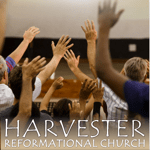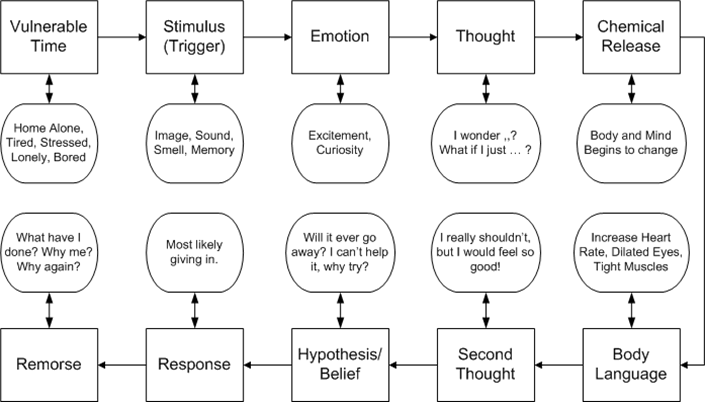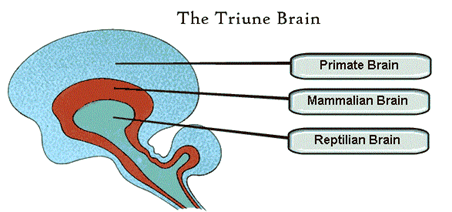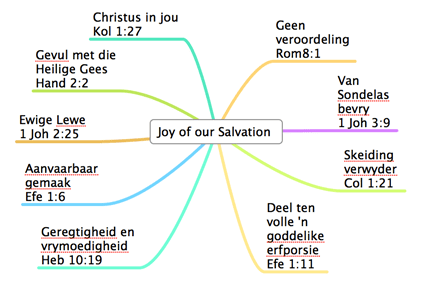Lofprysing wat God behaag.
Die objek van ons lof is die Here, God van hemel en aarde, verlosser en koning van ons hart! Ons fokus is nie die orkes, die sangleier, die liedjies, of die bewegings nie. Ons fokus is God en God alleen.
Ons lofprysing en aanbidding is nie gefokus om mense te vermaak nie. Jy kan ook nie eintlik ʼn toeskouer van ons aanbidding wees nie. As aanbidding span fasiliteer en help ons mense om elkeen sy/haar individuele offer van lof aan God te bring. (Heb 13:15) Die fokus is egter nie net op die individu se konneksie met God nie, ons fokus ook op mekaar om saam ons lof en eer aan die Here te bring. Omdat God nie in offers belang stel nie, maar in gehoorsaamheid is ons vandag nog steeds saam met die Heilige Gees en die Woord op ʼn pelgrimsreis om die lof te ondek wat God behaag. (1 Sam 15:22) Ware lofprysing is nie net die sing van liedjies nie, maar ʼn regte lewenswyse gebaseer op Jesus Christus en sy Koninkryk bedryfstelsel. (Amos 5:23-24; Mat 5-6) Soos wat ons meer vrymoedig raak om nie meer lof te gebruik om by God uit te kom nie, maar Hom te loof en prys op grond van die voltooide werk wat Jesus Christus alreeds vir ons gedoen het om ons te regverdig, maak ons gedurig nuwe ondekkings soos Hy Sy hart aan ons ontbloot. Lofprysing is dus ʼn geloofsweg om elke dag meer en meer God se hart te ondek soos ons in die geloof op grond van die kruis in Hom leef en wandel.
Aanbid Hom in gees en waarheid. (Joh 4:24)
Dit beteken om Hom te loof met opregtheid, eerlikheid, ongeveinste, lof wat nie omgee wat die mense sê nie. Waarheid spreek van die egtheid van ons fokus. Ons bid nie gebede om deur mense gehoor te word nie. (Mat 6:5-8) Aanbidding deur die Gees spreek van aanbidding wat uit jou hart kom, deur die Gees in jou geplaas tot God se eer. Dit is die kern van ons hele aanbidding is om terwyl ons sing en aanbid die Heilige Gees se hulp te soek, dat Hy ons help. Want niemand kan God werklik aanbid of sien sonder dat die Vader Homself deur Sy Gees aan ons openbaar nie. (Mat 16:17; Matt. 11:27; 1 Cor. 2:10; Gal. 1:16)
Lofprysing begin die dag wanneer God vir jou ʼn werklikheid word.
Wanneer jy God persoonlik sien, beleef of ervaar sal jy Hom loof en prys. Niemand sal jou hoef te leer hoe om dit te doen nie. Dis ʼn spontane reaksie op die werklikheid van Sy bestaan in jou lewe. Die probleem is dat baie mense oor die jare in ʼn kerk groot geword het, waar God net op een sekere manier geloof en geprys word. As gevolg van kulturele invloede en humanisme het aanbidding in die kerk vervreemd geraak met die voorskrifte en voorbeelde wat die Bybel leer. Spontane lofprysing gebeur hoogstens in ons binnekamer of in privaatheid. Die meeste mense wat in die kerk grootgeword het se reaksie oor ons lofprysing is: “Ons hou daarvan en dit is mooi, maar dit is vreemd” Mense is dit nie gewoond nie, en weet nie wat hulle moet doen nie. Ons begeerte is om ons eie opinies en idees neer te lê en soos kinders te word sodat die Heilige Gees ons kan leer deur die Woord hoe ons God moet aanbid in Gees en in Waarheid.
Hoekom Loof ons die Here so? Ons loof die Here volgens Bybelse Voorskrifte en nie ons eie opinie of mensgerigte planne nie.
Nadat Dawid se eerste poging om die Ark terug te bring na Jerusalem misluk het omdat hy nie die voorskrif wat God neergelê nagekom het nie, maak Dawid groot voorsorg en stel verskeie families aan om hulle lewe te wy aan die ontwikkeling van lofprysing en aanbidding soos God dit verlang. Want omdat julle in die begin nie by was nie, het die Here onse God teen ons uitgebreek, omdat ons Hom nie gesoek het soos dit behoort nie. (1 Kron 15:13) Dit is dan ons doel om die skrif te ondersoek en presies soos die woord vir ons voorskryf God te aanbid met ons hele hart, krag en verstand.
Loof die Here met jou alles, die hele mens is betrokke.
“Jy moet die Here jou God liefhê met jou hele hart, jou hele siel, al jou krag en jou hele verstand” (Luk 10:27) Dit impliseer eenvoudig dat jy die Here moet liefhê met jou gedagtes, jou emosies, jou liggaam, jou alles! Ons hele menswees is teenwoordig en betrokke om God voluit lief te hê. God is dus die fokus van ons hart. Ons alles, ons wil, ons lewe, ons begeertes, ons drome ons passies, ons gedagtewêreld is gerig om God te loof en te prys. Geen meer dualisme (verdeling in opponerende kompartemente)
Lofprysing is nie ʼn offer om God se guns te probeer verdien nie.
Die ondekkings wat ons gemaak het oor tyd rakende lofprysing is nie ʼn nuwe lys van werke om God te probeer behaag en so Sy guns te wen nie. Jesus het alreeds God se guns vir ons bekom. Soos ons in Sy teenwoordigheid staan en leef sien ons Sy hart en liefde om selfs in ons dade van lofprysing, óns aan te raak en te seën. Dis is wonderlik om te ondek hoe elkeen van die dade van lof, eintlik gerig is tot ons voordeel. God het nie ons lofprysing nodig nie, maar soos ons Hom meer en meer loof en prys verander ons perspektief, ondervind ons genesing, restoureer Hy ons lewe, en word ons getuies van Sy liefde. Daar is al so baie mense wat kan getuig dat hulle genesing, bevryding en redding ontvang het tydens ons lofprysing.
Verskillende tipe Liede en die sing van Geestelike Liede, ʼn nuwe lied, “the song of the Lord”
Terwyl julle saam psalms en lofgesange en geestelike liedere sing. Sing en jubel met julle hele hart tot eer van die Here. (Efe 5:19) Psalms is skrifgefundeerde melodieë met begeleiding van ‘n musiek instrument. ‘n Deuntjie wat jy sal onthou. “op die wysie van…” Gesang = ‘n uitgewerkte musikale verwerking van ‘n lering, poësie, lofsang. Gesange is liede wat meer skrifgebonde is en die fokus is op die woorde wat ons sing. Tydens gesange staan ons gewoonlik stil en konsentreer op die inhoud van die woorde wat ons sing.
Geestelike liede is liedjies wat uit ons gees kom, dit word op die oomblik geskep volgens dit wat ons in ons hart ervaar en in ons gees sien. Dit is ook die tipe liede waarvan Paulus in Korintiërs 14:15 praat. Ons sal met ons verstand sing, maar ook met ons gees. In vers 14, verduidelik Paulus dat iemand wat in tale bid, of dan in die gees bid se verstand nie betrokke is nie, die woorde kom deur die Gees. Wanneer ons dus in die gees bid of sing, gebeur dit in tale. Maar Paulus lê in die hoofstuk juis klem op die feit dat ons eerder moet profeteer en die taal moet uitlê, sodat mense daardeur opgebou kan word. Tale is gerig tot die Here, en nie ʼn mens nie. (1 Kor 14:2) Die vraag is: is alle liede nie per definisie geestelik nie? Hoekom die verwysing dat dié liede dan nou meer geestelik is as psalms en gesange. Dis duidelik dat geestelike liede verwys na die oorsprong. Psalms en gesange kan ons sing met ons verstand omdat ons die woorde en lirieke ken, maar geestelike liede is deur die gees geïnspireer en werk soos tale en profesie, dis bonatuurlik. Wanneer ek ʼn nuwe lied begin sing, is die deuntjie sowel as die lirieke spontaan en uit die gees. Net so min as wat ek die profetiese woord kon uitdink en uitwerk, so min kan ek ʼn nuwe geestelike lied oefen of uitwerk. Wanneer mens dit eers regkry om in die gees te sing, raak dit ʼn fontein wat nie opdroog nie. Jy kan vir ure aangaan, want in die gees is daar nie beperkinge nie.
Soms het dit spontaan in die byeenkoms gebeur dat iemand ʼn lied gesing het, hier word nie melding gemaak van ʼn sangleier nie, maar dat elkeen ʼn lied kon sing en bydra tot die opbouing en stigting van die liggaam. (1 Kor 14:26; Heb 2:11-12) Die term “nuwe lied” kom 19 keer in die Bybel voor, en beteken juis net dit: sing ʼn lied uit jou hart. Soos jy nie ʼn gebed kan aflees wanneer jy met God praat nie, maar eerder uit jou hart met God praat is dit die fokus van ʼn nuwe lied. (Ps 33:3; 40:3; 96:1; 98:1; 149:1)
Dit is glad nie moeilik vir mense wat vervul is met die Heilige Gees om spontaan lof aan God te bring nie. (Hand 2:11; 10:46) Die klem op al die bogenoemde skrifgedeeltes is die spontane lofprysing wat onvoorbereid gebeur. Dit is ook wat die mense gedoen het toe hulle palmtakke voor Jesus se donkie gegooi het en uitgeroep het “Hossanna, Hosanna in die hoogste hemele” (Mat 21:9-11) Die gebeurtenis staan in sterk teenstelling met die organiseerde Godsdiensbeoefening van die Fariseërs in die tempel en hierdie spontane feestelikheid op straat.
Die rol van die aanbiddingsleiers teenoor die rol van die gemeente.
In 2 Kron 29:25 – 29 sien ons hoe die volk die Here loof en prys. “Terwyl die brandoffer aangebied is, het die lofliedere tot eer van die Here begin. Hulle is begelei met die trompette en ander instrumente van Dawid, koning van Israel. 28Die hele gemeente het die Here aanbid terwyl die sangers gesing en die trompette weerklink het” In die gedeelte kan ons aflei dat die aanbidding van die volk baie spontaan was, die volk het nie noodwendig die liedjies geken of saamgesing nie. Later sou hulle spesifieke liede sing en saamsing. “Koning Hiskia en die amptenare het die Leviete beveel om die Here te prys met die psalms van Dawid en Asaf die siener. Hulle het met vreugde lofliedere gesing, neergebuig en aanbid.”
Lofprysing as gebed en intersessie.
Ek sal aan hulle vreugde gee in my huis van gebed, hulle brandoffers, hulle offers op my altaar sal vir My aanneemlik wees, want my tempel sal uitgeroep word tot ’n huis van gebed (tephillah) vir al die volke. (Je 56:7) Tephillah is ‘n gesang wat as ‘n gebed aan God gesing word. Die Bybel is vol voorbeelde van hierdie tipe gesange. Ps 7, 9, 10, 11, 17, 55, 57, 70. So is ook ons klaagliedere en versoeke aan God gesing. Ps 22, 94, 102, 109, 140. Verder is mense bemoedig en versterk deur sang. Ps 66, 100, 103, 113, 114, 150.
Profeteer deur musiek.
Dawid en die amptenare in beheer het die seuns van Asaf, Heman en Jedutun vir ’n besondere diens afgesonder. Hulle was mense wat onder begeleiding van liere, harpe en simbale as profete opgetree het. Hier volg besonderhede oor die manne wat ’n funksie gehad het in hierdie diens. (1 Kron 25:1) Moreover David and the captains of the host set apart for the service certain of the sons of Asaph, and of Heman, and of Jeduthun, who should prophesy with harps, with psalteries, and with cymbals: and the number of them that did the work according to their service was: (1 Chro 25:1)
Hoor dit, alle volke, luister, alle bewoners van die wêreld, geringes sowel as aansienlikes, tesame ryk en arm! My mond sal louter wysheid spreek, en die oordenking van my hart is net verstand. (Ps 49:2-4) My mouth shall speak wisdom, And the meditation of my heart shall give understanding. I will incline my ear to a proverb; I will disclose my dark saying on the harp. (Ps 49:2-4)
Skryf dan nou vir julle hierdie lied op, en leer dit aan die kinders van Israel; lê dit in hulle mond, dat hierdie lied vir My ’n getuie teen die kinders van Israel kan wees. (De 31:19)
Maar bring nou vir my ’n siterspeler. En toe die siterspeler op die snare speel, het die hand van die Here op hom gekom, (2 Konings 3:15)
Then Hezekiah commanded them to offer the burnt offering on the altar. And when the burnt offering began, the song of the Lord also began, with the trumpets and with the instruments of David king of Israel. (2 Kr 29:27)
Dans
En Mirjam, die profetes, die suster van Aäron, het ’n tamboeryn in haar hand geneem; en al die vroue het uitgegaan agter haar aan, met tamboeryne en in koordanse. (Exodus 15:20) Daarby het Dawid met alle mag gedans voor die aangesig van die Here; en Dawid was omgord met ’n linneskouerkleed. (2 Samuel 6:14) Laat hulle sy Naam loof in koordans, Hom psalmsing met tamboeryn en siter. (Psalm 149:3) Loof Hom met tamboeryn en koordans, loof Hom met snarespel en fluit (Psalm 150:4) Die beste voorbeeld van hoe hierdie “koordanse” gelyk het is ons volksdanse of die Indiese Groep Danse. Dans vir die Here is so spontaan en natuurlik soos ʼn kind wat skielik aan die das raak vir sy ma en pa. Ons moet nie probeer om die dans te veel te vergeestelik nie. Sommige mense glo dat koordanse verwys na ʼn in ʼn geestelike vervoering, in-ʼn-trans tipe beweging. Alhoewel dit verseker kan gebeur dat ons só meegevoer kan raak in die teenwoordigheid van die Here, is dans bloot ʼn reaksie op wat God gedoen het. Omdat hy ons gered het, omdat ons gevul is met Sy vreugde volg ons liggaam spontaan ons hart en begin ons jubel en dans.
Selfs Jesus het spontaan in ‘n dans losgebreek! Jesus het die Vader geprys – Luk 10:21 In dieselfde uur het Jesus Hom in die gees verheug en gesê: Ek loof U, Vader, Here van die hemel en die aarde, dat U hierdie dinge verberg het vir wyse en verstandige mense en dit aan kindertjies geopenbaar het. Ja, Vader, want so was dit u welbehae. (Lu 10:21) Agalliao = Om te spring, om in die lug te spring van blydskap, ekstaties en uitermatig bly en vol vreugde.
Die dans was gewoonlik gelei deur ʼn dansleier. (Miriam – Eks 15:1-20; Jefta – Rig 11:34; Barak en Dobora -Rig 5) Dit is ook waarskynlik dat Koning Dawid spontaan begin het om die dans te lei. (2 Sam 6) Die gebruik van tamboeryne tydens die dans was ook algemeen – (2 Sam 6:5; 6:19-20; 6:22) Volgens Wiseman was Mikal se probleem juis dat sy veronderstel was om as Koningin die Vroue se groep te lei, maar sy het geweier. Die doel van hierdie gesamentlike volksdanse, was om die volk te verenig in hul aanbidding en omdat hulle as nasie God gedien het. Die Jodedom is ʼn teokrasie – naamlik: ʼn volk waar God die Koning is, en die kultuur bepaal. Dit staan teenoor ʼn demokrasie, waar die mense die leiding en kultuur bepaal. Dans was dus deel van hul kultuur om vir die ander volke te wys, dat hulle nie dans vir plesier, self verheerliking of seksuele konnotasies nie, hulle dans vir die Here!
Profetiese aksies en beweging is die dans:
Toe die Here die dans herstel het in ons kerk, het ons begin besef dat net soos daar verskillende ekspressies is in Lofprysing is daar verskillende fokusse in die dans: Die musiek en fokus van die lofprysing bepaal dan ook die vorm wat die dans gaan aanneem. Sou die fokus oorlogvoering en oorwinning wees, dan is die dans meer ekspressief en meer manlik, sterk, vorstelik. Sou die fokus van die aanbidding wees, hoe lief ons die Here het, raak die dans meer vloeiend en vroulik van aard. Soms is die dans kinderlik, en gefokus om die kinders te kan laat deelneem, ander kere is die dans diep en intens en ernstig. Die dans het al hoe meer ʼn fisiese ekspressie geword van wat ons as kerk gesamentlik moet doen. Sou die fokus byvoorbeeld wees dat gedurende ons aanbidding die Here ons lei om die oes te gaan insamel, dan beeld ons dit uit in die dans. Die dans word dan ʼn sterk visuele metafoor en profetiese teken van wat die Here besig is om vir die kerk te sê.
In Ou Testamentiese tye was dit ook algemeen dat die mans en die vrouens apart in groepe gedans het, en baie keer teenoor mekaar gestaan het in die dans. Mans sou dan ʼn sekere boodskap aan die vrouens dans, en die vrouens wees aan die mans. Dit is baie praktiese omdat mans se liggame anders werk as vroue sin, en sekere bewegings beter vertoon by mans as by vrouens. Daarom sal jy opmerk in ons dienste dan daar gewoonlik ʼn man dansleier voor staan met die mans agter hom, en die vrouens het ook ʼn dansleier met die vrouens agter haar. Soos in die tyd van Dawid, het die hele volk nie altyd saam gedans nie, die dansers was uitgekies en het die volk voorgegaan in die dans. Tog was daar tye waar die hele volk saam gedans het. Toe ons kerk anders begin sien, nie meer as ʼn organisasie of klub nie, maar as ʼn liggaam waarvan elke lid deel vorm en aktief sy of haar rol speel, het ons besef dat God die hele gemeente wil bevry en genees deur die dans. So alhoewel ons ook dans leiers het, wil ons graag dat die hele gemeente saamdans, anders is dit weer ʼn kwessie van toeskouers teenoor “performers”. Dans is so bevrydend, en al hoe meer New-Agers is besig om die krag van dans te ondek, en hou dans kampe waar mense soos die Indiane om ʼn vuur dans. Dans behoort aan die Here, en ons is besig om dans weer terug te eis van die vyand wat dans verwring en besmet het vir sy doeleindes. Dar is vir my niks lekkerder om te sien hoe die kinders lofprysing geniet as gevolg van die dans nie. Hulle is natuurlike dansers en is nie gepla oor wat die mense sou sê nie, en nou dans ons vir die Here!
God jubel en juig oor ons.
Die Here jou God is by jou, ’n held wat verlossing skenk. Hy verheug Hom oor jou met blydskap; Hy swyg in sy liefde; Hy juig oor jou met gejubel. (Sef 3:17) Suws = om bly te wees, vreugdevol, verblydend, vrolik en opgeruimd. Rinnah = jubel, ‘n skril geluid, van blydskap of rou, uitroep van vreugde en blydskap, proklameer.
Selah.
Die woord word meer as 70 keer gebruik in die OT. Die betekenis van die woord is onduidelik, maar sommige dink dit is ʼn “A liturgical mark (sālal, ‘to lift up’; Akkadian sullu, ‘prayer’), perhaps to lift up the voice or the hands in prayer. It may have come into use, possibly in the exilic period, in connection with psalms used in public worship to denote those places at which the priest should pronounce a benediction. Some take it to mean ‘to lift up’ the eyes, for the purpose of repeating the verse, thus the equivalent of ‘da capo’. Others would derive it from an Aramaic root sl, ‘to bow’, and so interpret it as directing the worshipper at this point to prostrate himself.” Vir ons beteken dit dat daar tydens aanbidding tyd vir refleksie en meditasie moet wees. Lofprysing is nooit eenrigting nie, ons wil ook op die Here wag, en hoor wat Hy wil sê tydens die aanbidding.
Verder gebeur die volgende sporadies en spontaan tydens ons Aanbidding.
Hande Klap – Ps 47:2; Jes 55:12
Juig, toejuig, uitroepe – Esra 3:11; Ps 95:1-2
Sang – Ps 100:4; Ps 101:1; Ps 105:2
Op jou aangesig lê – Gen 17:3
Kniel en neerbuig – Ps 95:6; Esra 9:5; Efe 3:14
Staan – Gen 18:22
Ophef van hande – Ps 63:5; Ps 28:3; 1 Tim 2:8; 1 Kon 8:54
Antifonies – (Weerklink, ego) Ps 107; 136; Neh 12:31, 40-42
Wat moet jy doen tydens aanbidding?
Bono die bekende popgroep U2 se hoofsanger wat ‘n belydende Christen is; sê dat alle musiek ‘n vorm van aanbidding is. Die een persoon aanbid sy verlore liefde, of ‘n plek, of ‘n persoon ens. ens. Wanneer ons dan dans en saam hande klap op die ritme van ‘n mooi liedjie waarvan ons hou is ons besig met ‘n vorm van aanbidding. Wanneer ons egter God moet aanbid dan is ons geïnhibeerd en voel ons ongemaklik.
Beweeg en sing saam. Al kan jy nie al die bewegings doen nie, of al ken jy nie die liedjies nie. Neem deel. Dis familie! Ons is mos nie vreemd saam met familie nie? Ons wys die gereedheid en gesindheid van ons hart, deur onsself nooit te vervreemd van familie nie. Sou jy gelowiges van ʼn ander taal en nasie besoek het, sou jy nie eers die woorde kon verstaan nie, maar nog steeds saam neurie en deelwees!
Moet net nie die werk van die Gees teëstaan nie, of verag soos Migal, Saul se dogter nie. (2 Sam 6) Niemand word verplig om enigiets te doen tydens aanbidding nie, ons doel is om mense te lei en te help om hulle eie lofoffer aan die Here te bring. Fokus dus op die Here, en loof Hom met jou hele hart.
Soms is daar tyd vir individuele aanbidding.
Toe buig die man hom neer en aanbid die Here (Ge 24:26)
En as Moses in die tent ingaan, kom die wolkkolom af en gaan by die ingang van die tent staan, en dan spreek Hy met Moses. En as die hele volk die wolkkolom sien staan by die ingang van die tent, staan die hele volk op en buig, elkeen aan die ingang van sy tent. Dan spreek die Here met Moses van aangesig tot aangesig soos ’n man met sy vriend spreek. (Ek 33:9-34:8)
Die belangrikheid van korporatiewe aanbidding.
Daarna het Dawid aan die hele vergadering gesê: Loof nou die Here julle God. Toe het die hele vergadering die Here, die God van hulle vaders, geloof; en hulle het gebuig en voor die Here en voor die koning neergeval. (1 Kr 29:20) Wanneer ons byeenkom is dit nie eintlik nie die tyd vir individuele aanbidding nie, alhoewel ons meestal daarvoor tyd inruim. Die liggaam wat saam die Here soos een mens aanbid, is welbehaaglik vir die Here! (Hy woon onder die lofsange, let wel meervoud, van Sy volk) Ps 133:1
Die gees waarin ons aanbid.
God sien ons hart en nie ons lofprysing bewegings nie. Jy kan dans, spring en juig maar God sien die hart waarmee jy dit doen. Dit is wesenlik belangrik dat ons sonder toorn, bitterheid, twis, onenigheid ons hande op steek na die Here. (1 Tim 2:8) Die Gees van aanbidding is die Gees van Christus nl: diens, onderwerping, die ander hoër ag, sensitief, nugter en ongeveins. Dit is wat die dinamika van korporatiewe aanbidding so kragtig maak, ons leer om saam die Here te loof en eer. Die hele gesin, en die hele gemeente loof die Here saam. Niemand staan eenkant of vervreem nie. God se koninkryk is insluitend, niemand word uitgesluit nie. Daarom neem ons mekaar in ag, ook in die keuse van die liedjies. Jonk en oud, lê ons eie smake en voorkeure neer om God saam te aanbid. Al hierdie ‘saam’ aksies is gesetel in die verloëning van self. Dit is in sterk teenstelling waar lofprysing maklik kan ontaard in selfgerigtheid, self verheerliking, mens verering, vleeslikheid en wedywering, vleeslike drif en fokus op menslike prestasies. Nederigheid, diensbaarheid, eenheid, ootmoed, gehoorsaamheid is die Gees van Christus wat moet heers in ons aanbidding.
Categories
Die postuur van ‘n aanbidder.








 Buite die raamwerk van intimiteit en eenwording in ons verhouding met God, ons maat, en die liggaam, word die einste middel wat ons gebruik vir ontvlugting ons tronksel. Ons wat geskape is na God se beeld, raak slaaf van geskape middels.
Buite die raamwerk van intimiteit en eenwording in ons verhouding met God, ons maat, en die liggaam, word die einste middel wat ons gebruik vir ontvlugting ons tronksel. Ons wat geskape is na God se beeld, raak slaaf van geskape middels. This brain is the first to be developed. It is responsible for autonomic bodily functions such as heartbeat, breathing, and temperature control. It is also responsible for the most important human needs, such as survival, feeding and mating.
This brain is the first to be developed. It is responsible for autonomic bodily functions such as heartbeat, breathing, and temperature control. It is also responsible for the most important human needs, such as survival, feeding and mating. Kyk net na die volgende “mindmap” en sien die vrymaking en verlossing van jou redding!
Kyk net na die volgende “mindmap” en sien die vrymaking en verlossing van jou redding!